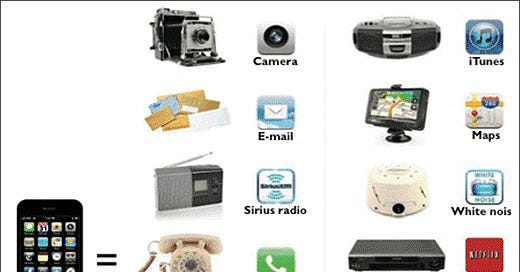Recap
In Part 1 we talked about the end of the world with the turn of the Century,
…how the growth of the internet laid the foundation for the modern technology company behemoths,
…and how technology is accelerating everything from transportation, to communication, to innovation.
We talked about how the modern day smartphone has more computing power than those that put astronauts on the moon,
…And how that same phone has replaced hundreds of tools in just the last 10-20 years.
Tools like…a camera, video recorder, radio, portable music player, eBook, calculator, gps, voice recorder, flashlight, fax, video gaming system, barcode scanner, landlines, clocks, encyclopedias, lidar, and much more.
We left off asking a few important questions like:
How is all of this possible/ How did we get here?
What specific inventions had the greatest impact throughout history?
And what inventions matter most today?
To answer these questions we have to go back before history, -before recorded time.
In a Land Before Time
No not this time…
This time… sort of.
Before human history was ever written down, it was told through stories, legends and fables. And before fables, important events for the knowledge of future generations was written on cave walls to be passed on for the tribe’s prosperity.
This is known as prehistory, or pre-literary history.
Prehistory is traditionally broken up into three ages; the stone age, the bronze age, and the iron age.
Beginning with the Paleolithic Era (stone age), the only technology invented was largely stone tools by early hominins as far back as 3.3 million years ago.
This period spanned all the way up until the end of the Pleistocene just 11,650 years ago.

A Few Landmarks - Simple Inventions
As a good frame of reference the first anatomically modern humans weren't around until about 200,000 years ago.
This means that between 200,000 and 10,000 years ago, our early ancestors were hunters and gatherers.
Here are just some of the highlights:
125,000 years ago: Concrete evidence of widespread controlled use of fire dates to about 125,000 years ago.
90,000 - 70,000 years ago: Historical estimates for widespread use of stone weapons (harpoons), clothing, and bedding, put them somewhere between 90,000 and 70,000 years ago.
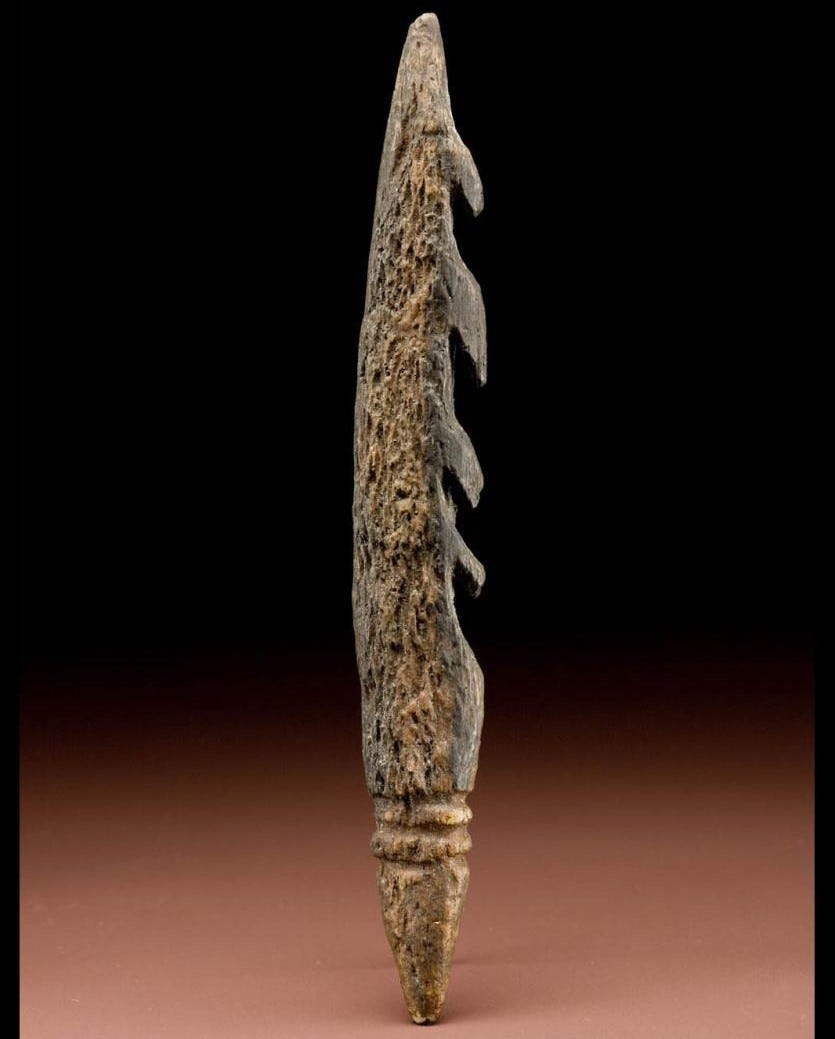
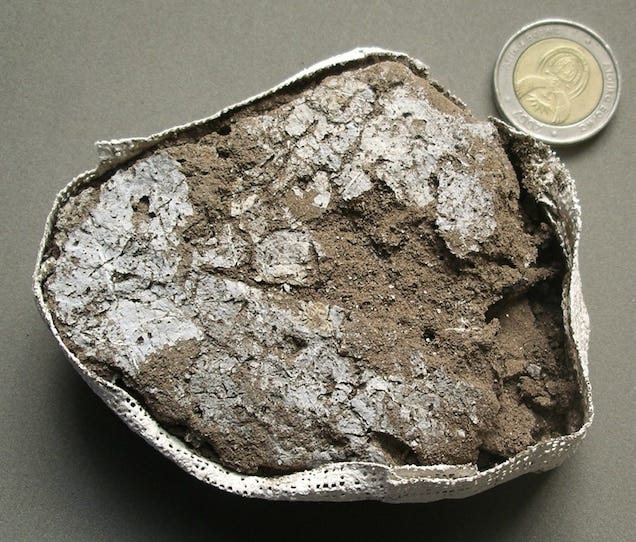

10,000 years ago: Early boats weren't invented until some 10,000 years ago. Around this time the first horses were also domesticated. The first irrigation canals were built. And papyrus, a plant found along the Nile River, was used for writing and all sorts of furnishings.

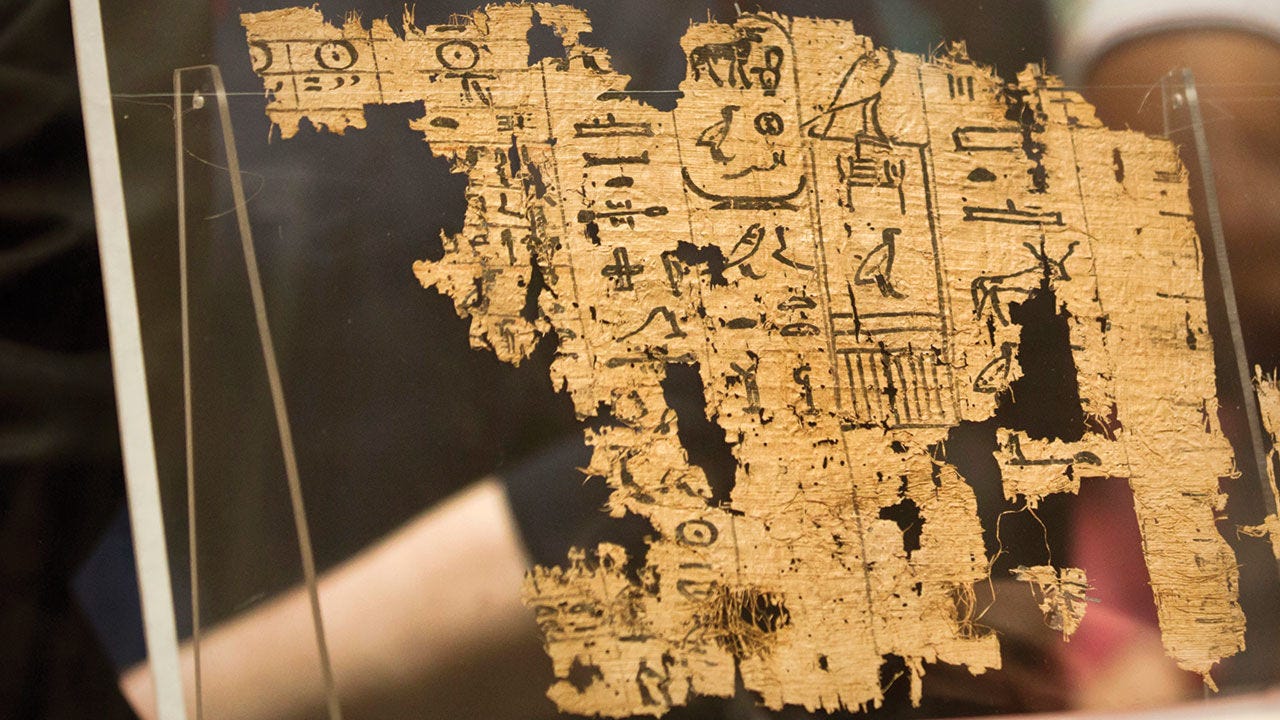
5,500 years ago: Writing was invented independently in the near East, China and Mesoamerica.
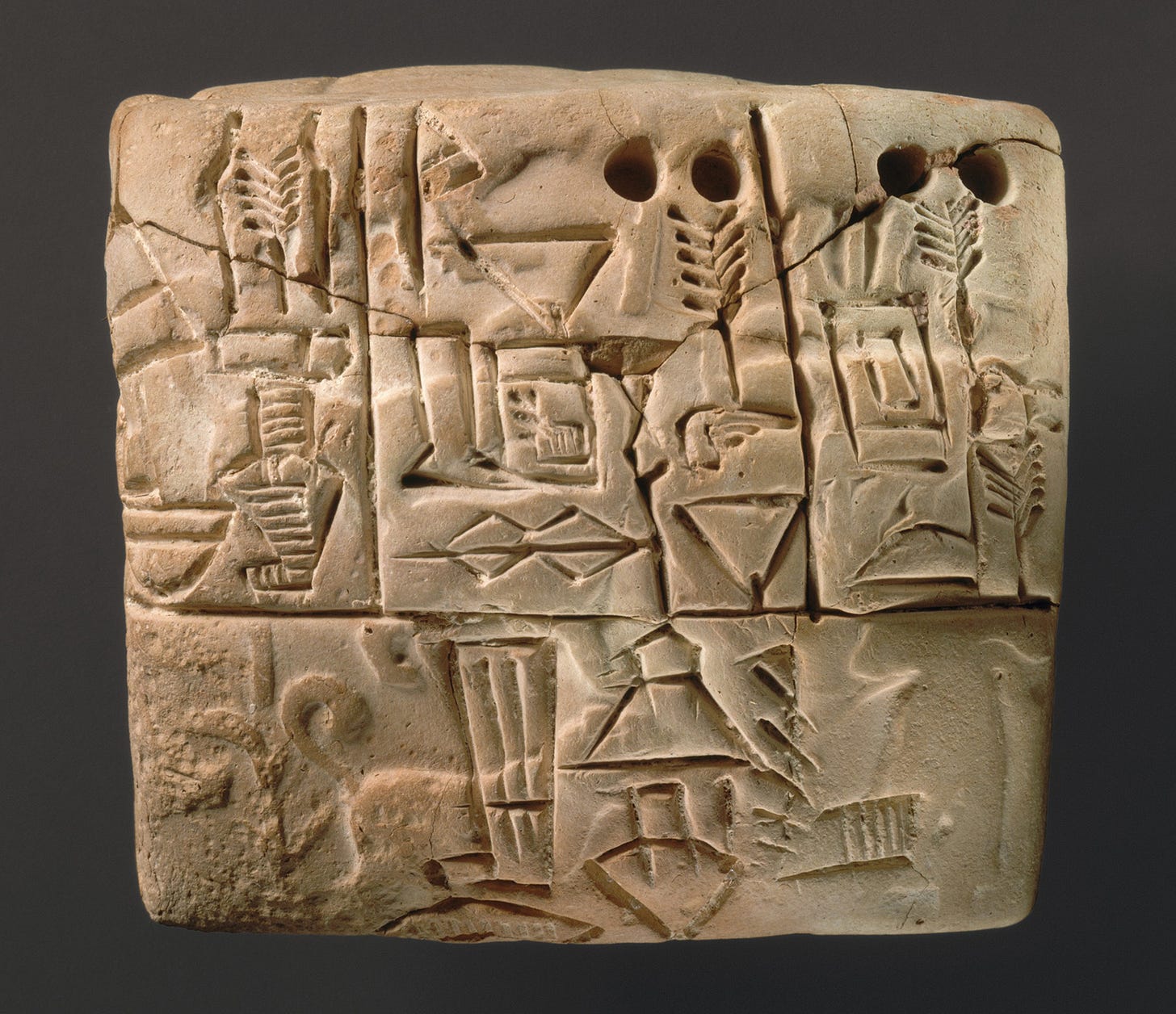
5,000 years ago: Around 5,000 years ago the first wheel was invented, as well as iron nails and concrete.
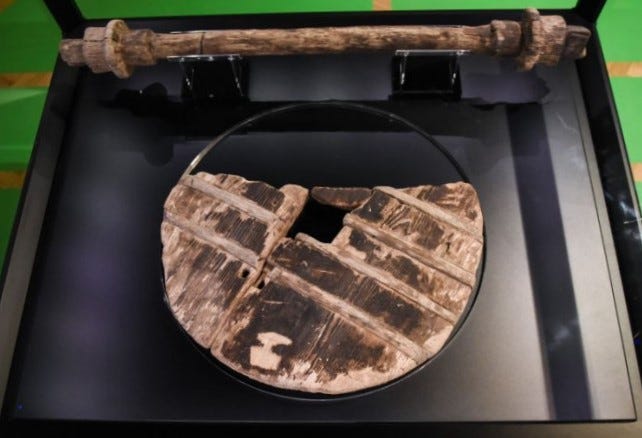
3,000 year ago: The modern day English alphabet dates back about 1,000 years before Christ.
1,000 years ago: And for the next 1,000 years after Christ, optics 50 (CE), the compass and our modern day number system (200 CE), the windmill (500 CE), gunpowder (800 CE) and paper money (960 CE) would all be invented.
The Dark and The Light
Just 500 years after the death of Christ, this is considered to be the beginning of the dark ages (500 CE - 1500 CE).
We call them dark because in 476 CE, while Rome faced numerous internal struggles and increasing attack from Huns, Vikings, and the Germanic tribes, the Germanic leader Odoacer staged a revolt and deposed the Emperor Romulus Augustulus.
From then on, no Roman emperor would ever again rule from a post in Italy. As a result many historians point to this event as the true fall of the Roman Empire.
From the Wikipedia page on Dark ages:
The concept of a "Dark Age" originated in the 1330s with the Italian scholar Petrarch, who regarded the post-Roman centuries as "dark" compared to the "light" of classical antiquity. The term employs traditional light-versus-darkness imagery to contrast the era's "darkness" (lack of records) with earlier and later periods of "light" (abundance of records).
Although most modern scholars reject the use of “dark ages” for it’s negative connotations of barbarianism, ignorance, and superstition, which have little supporting evidence, the societal juxtaposition of classical antiquity with the early middle ages still reveals some of the greatest lessons and inventions in history.
Perhaps most importantly, Truth Matters.
When we aren’t able to determine what is true, society collapses. There is no basis for communication and collaboration. If there’s no trust, we can’t work together. This is a consistent message throughout history.
That’s why the greatest invention in history revolves around helping us determine what is true.
To find out the greatest invention in history, and to read where the future is headed (according to the really rich and really smart), check back next week with new posts every Thursday!

